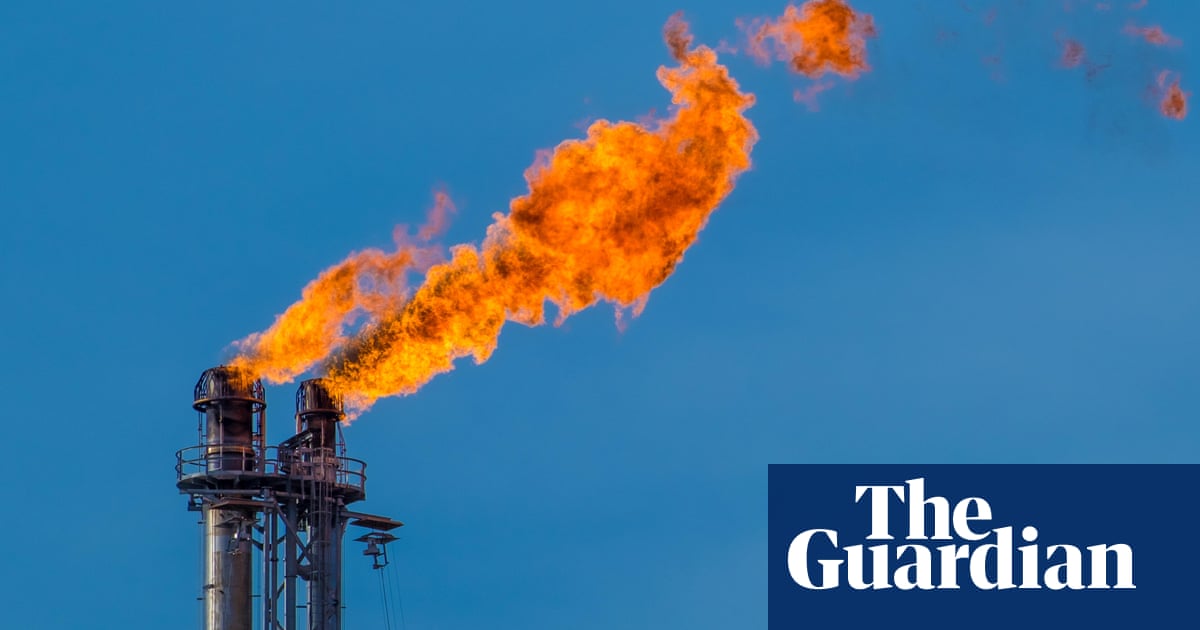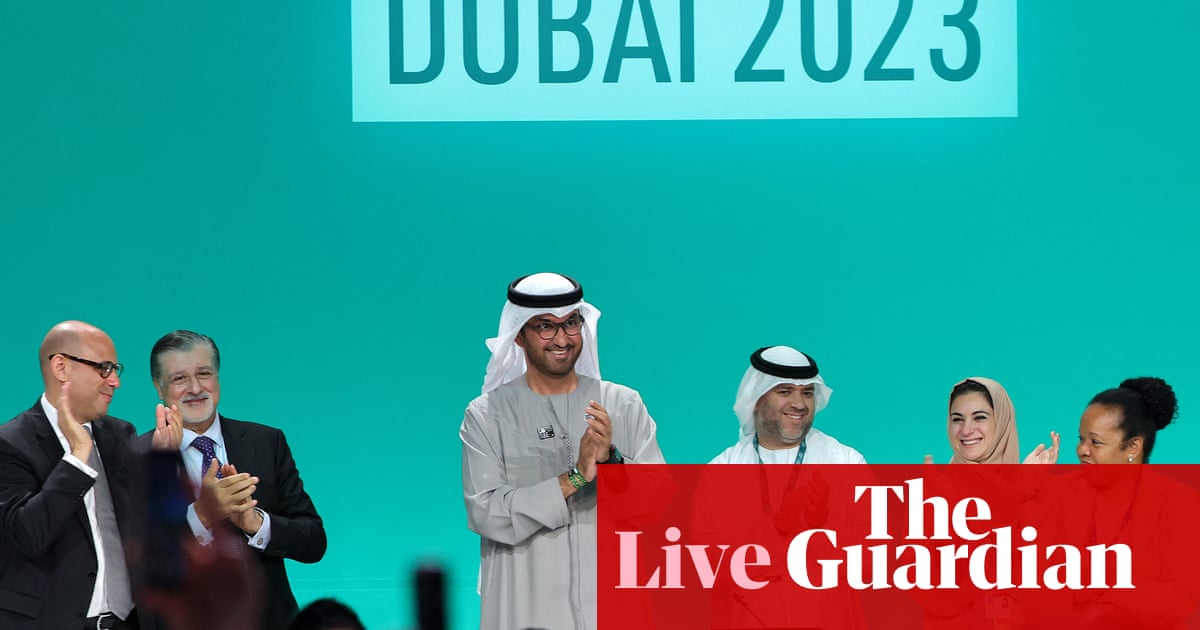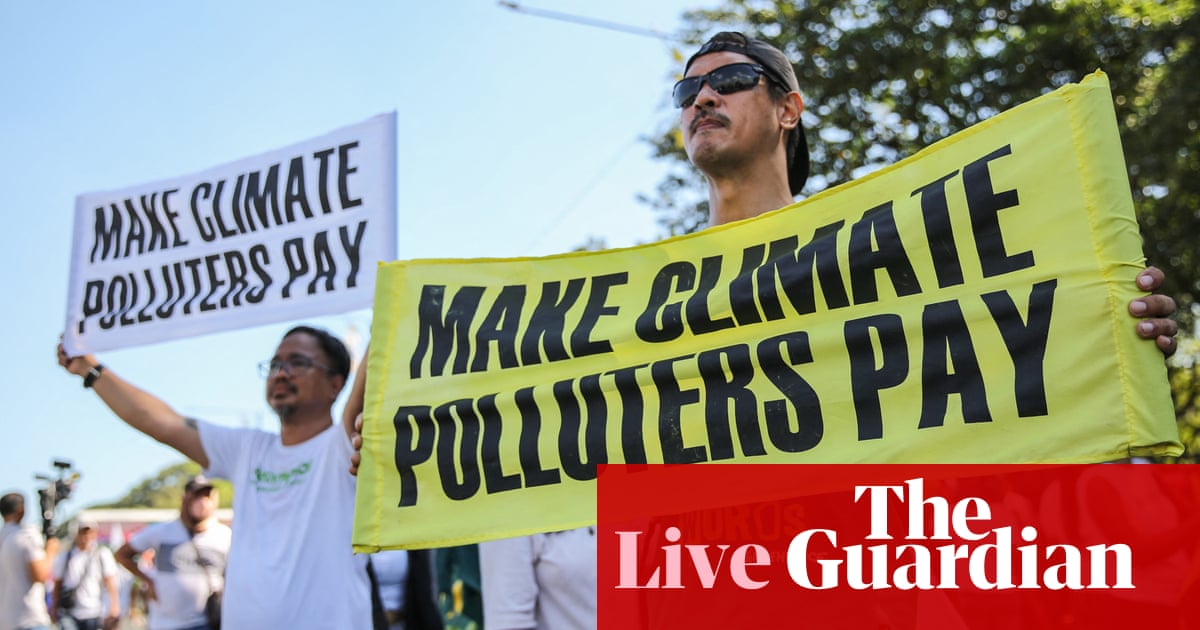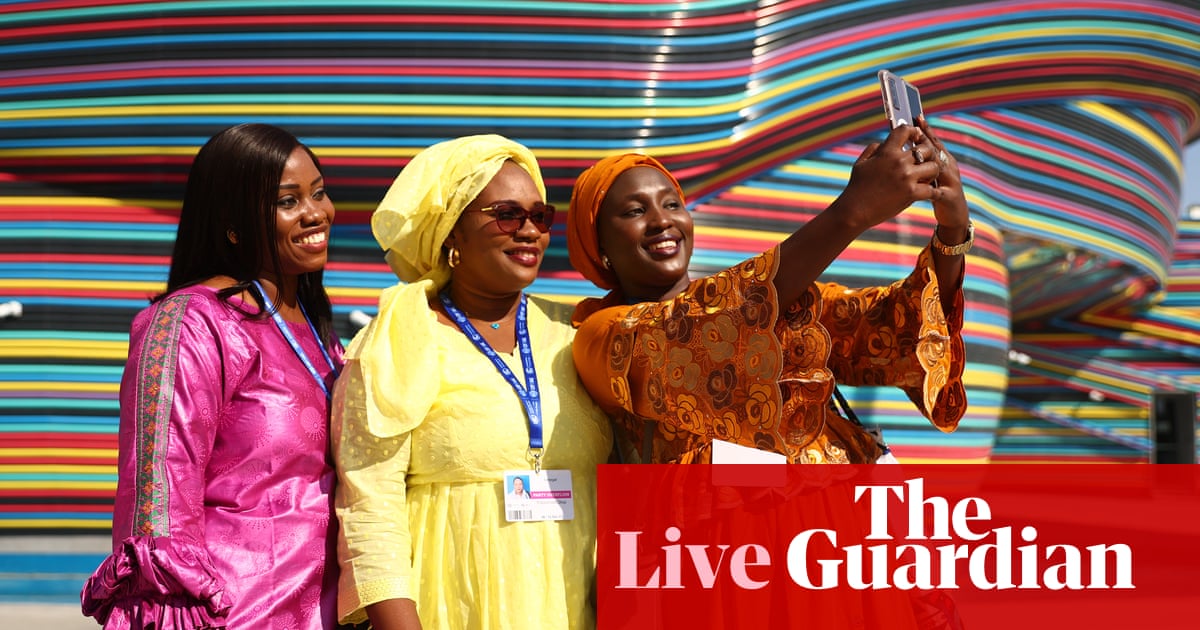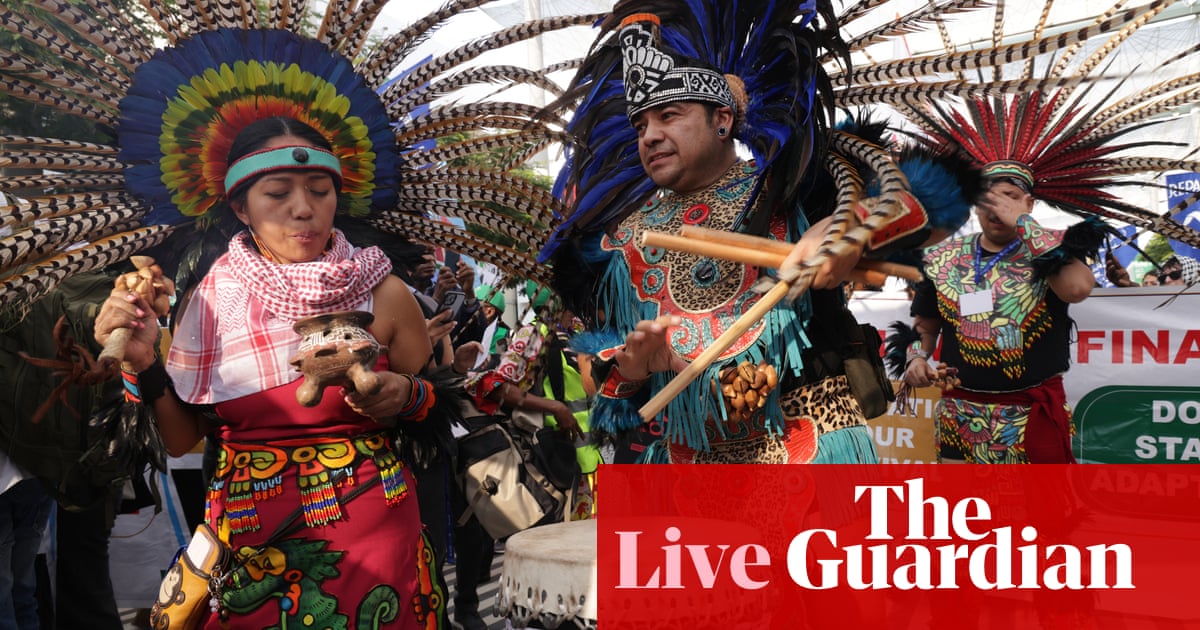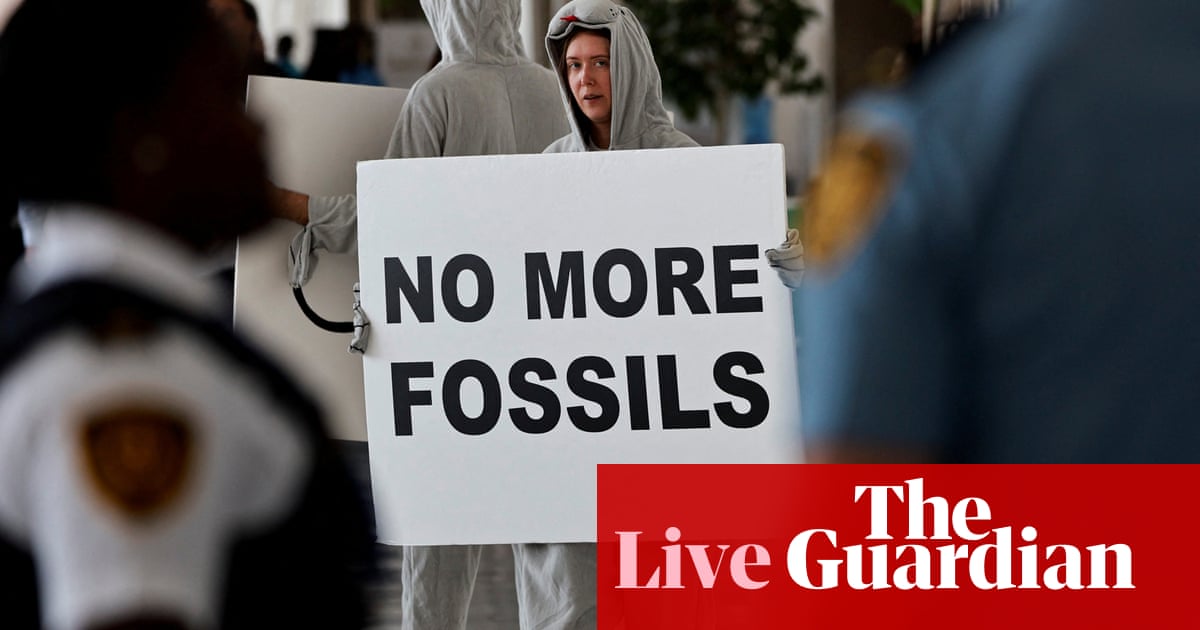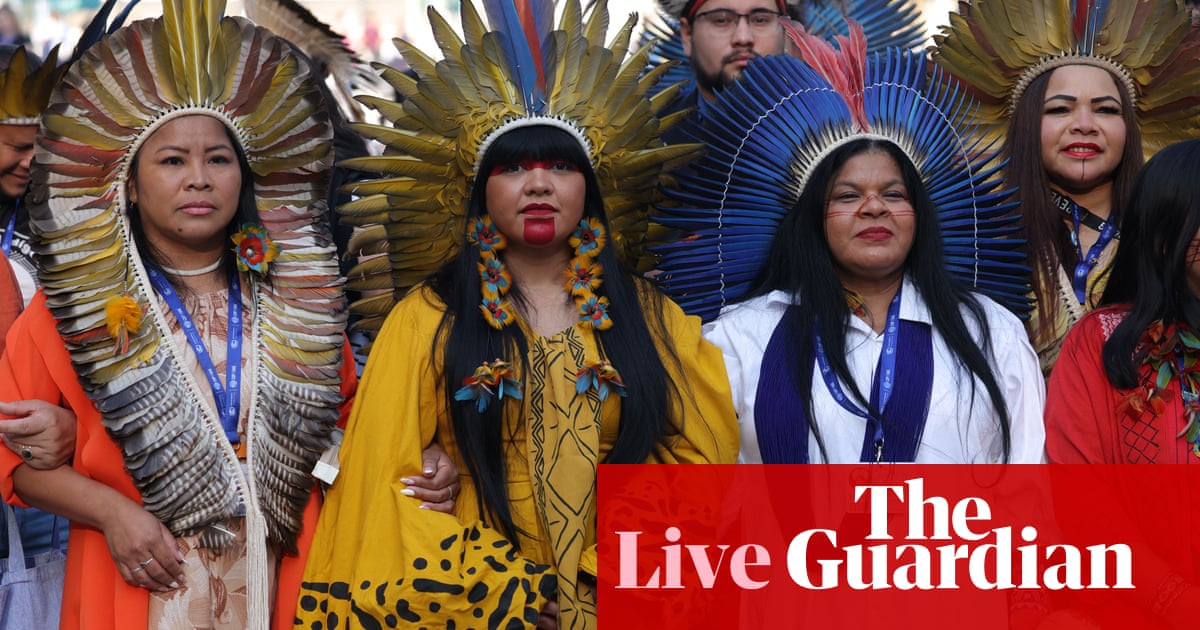
"You don"t bring arsonists to a firefighting convention" – anger after record number of fossil fuel lobbyists given access to Cop28
There’s been more reaction to the news that a record number of fossil fuel lobbyists have been given access to Cop28.
Climate Action Network, the world’s largest coalition of climate NGOs, highlights that there are:
More fossil fuel lobbyists than delegates from the 10 most climate-vulnerable countries combined
More than seven times the number of fossil fuel lobbyists than official Indigenous representatives
Tzeporah Berman, the chair of the Fossil Fuel Non-Proliferation Treaty, says “stop negotiating with them and start regulating them”.
Green New Deal Rising, a movement of young people fight for climate justice, joins the dots.
Joseph Sikulu, a Pacific climate activist, says, “This poisoning of the process needs to end.”
And StopRosebank, a campaign group to stop new oil and gas development in the North Sea, says the fossil fuel industry cannot be trusted “to come up with solutions to a crisis of its own making”.
Closing summary
Cop28 has wound up for the day. The key events were:
widespread outrage at the news that a record number of fossil fuel lobbyists have been given access to Cop28,
agriculture and food systems have been left off the latest draft of the negotiating text on the global stocktake and
Mary Robinson has made her first comment since the row over the Cop28 president’s controversial response to her questions on the need for a fossil fuel phase-out, revealed by the Guardian.
Thanks for joining us, we’ll be back tomorrow.
It’s Indigenous people’s day at Cop28, where it is very hard for native communities to get a seat at the negotiating tables where life and death decisions about their lands and customs are made. Which is a huge loss for all of us, as we need more delegates like Teresa Christa Mashian, 33, who is representing the Achuar people from the Ecuador Amazon. It’s her first Cop: she is the first woman from her community to travel outside of Ecuador, and the first woman to ever be elected as community leader – a post she has held for three years. “My job is keep the community safe, and protect the forest for future generations. Women were never allowed to take roles outside the home in the last but I’ve shown them that we are capable.”
Her biggest achievement so far has been gaining protected status for 50,000 hectares (124,000 acres) of virgin forest – with the help of Conservation International. Last year, carbon offset brokers – unknown people from other countries – started showing up, offering money to the community to join various schemes. “The community has needs – our young people have to leave to study and find jobs in the city, and some fall into addiction and prostitution. We’d love to start a community tourism project. But other communities have had bad experiences with carbon market projects so I am trying to find out more information as I don’t want to be scammed.”
It’s worth remembering that access was granted to seven times more fossil fuel lobbyists than official Indigenous delegates at Cop28.
The daily “fossil of the day” award, given by activists to the country deemed to be lagging in its climate action, has been handed to … the US.
The unwanted dinosaur-themed trophy was bestowed, to accompanying boos, for US expansion of oil and gas drilling. There were two runners-up: Japan, which prompted someone in a Pikachu costume to emerge, and Russia.
John Kerry, the US climate envoy, has just spoken at an event on nuclear fusion energy, sometimes described as the holy grail of clean energy. “We are edging ever closer to a fusion powered reality,” the former US secretary of state declared.
Kerry said that the potential power source, which would create electricity via nuclear fusion reactions, has the potential to “revolutionise our world, change all of the options in front of us and provide the world with abundant and clean energy without the harmful emissions of traditional energy sources”.
“We’ve had a little debate in the last few days about what the science shows or doesn’t show,” Kerry added, in reference to the furore caused by Sultan Al Jaber’s comments on a fossil fuel phase-out, reported by the Guardian, but that the “science clearly tells us without any question whatsoever” that the burning of fossil fuels is the root cause of the climate crisis.
Kerry acknowledged that he couldn’t say how close nuclear fusion energy was to being a reality, however, after a breakthrough by American scientists last year that showed a crucial part of the process was possible.
If you’ve ever wanted to glide around the increasingly superheated seas on a yacht but worry about feeling a tad guilty about it then rejoice – ‘responsible’ yachting has come to Cop28.
Sunreef Yachts, a Polish yacht maker, has just held an event under the scorching Dubai sun extolling their range of solar-powered yachts. The company’s representatives acknowledged the rather un-green image of super yachts, admitting that the 300 biggest boats in the world cause emissions equivalent to that of 10 million people.
“We have to realise at first that yacht builders have a bad reputation in general in the area of all things sustainable,” said Artur Poloczanski, PR director of Sunreef.
The emissions from yachts are “scary”, Poloczanski admitted, but added “it’s fair to say the yachting environment is very diverse. We are here to discuss the alternatives.”
A range of different yachts provided by Sunreef include a solar ‘skin’ that can generate power, stored by batteries. Some can run on hydrogen fuel cells, too. But the company does also offer extremely large vessels, complete with private spas, gyms, outdoor cinemas and space for jet skis, powered by tanks holding upto 5,200 gallons of fuel.
If you do have enough money for a super yacht, you’ll likely be within an elite with an outsized contribution to the climate crisis. As reporting by the Guardian on the eve of Cop28 showed, the richest 1% of humanity is responsible for more carbon emissions than the poorest two-thirds of people on the planet.
Agriculture and food systems have been left off the latest draft of the negotiating text on the global stocktake.
A coalition of groups, including WWF, the Food and Land Use Coalition and the Environmental Defense Fund are calling on the UN framework convention on climate change (UNFCC) to ensure agriculture and food become part of the stocktake.
The global stocktake is supposed to be a thorough assessment of how much progress countries are making toward the Paris agreement targets, which committed countries to limiting global warming to below 2C, and ideally to 1.5C compared with the pre-industrial era.
The NGOs, in a letter to the UNFCC on Tuesday, said: “We note with significant concern the omission of agriculture and food systems from the draft text released this morning.
“The findings of the IPCC and the global stocktake technical phase are unequivocal – we will not achieve any of the long-term goals of the Paris agreement without more ambitious, comprehensive, and equitable climate action on food …
“To be clear: the global stocktake cannot deliver its mandate and build a resilient, equitable future for all without considering food systems as a solution for both mitigation and adaptation.”
At this year’s UN Cop28 climate summit the issue of air conditioning will be at the forefront of discussions as some of the world’s largest economies have signed up to the first ever global cooling pledge, led by the UN environment programme.
So far, more than 50 signatories have signed on to cut their cooling emissions by 68% by 2050.
India, however, is not expected to join. The country’s market for ACs is growing faster than almost anywhere else in the world. Higher incomes, rising temperatures in an already hot and humid climate and increasing affordability and access are driving more and more Indians towards buying or renting one as soon as they can afford it – and sometimes even when they cannot.
Between 8% and 10% of the country’s 300m households – home to 1.4 billion people – have an AC, but that number is expected to hit close to 50% by 2037, according to government projections. A report by the International Energy Agency (IEA) predicts that by 2050, India will have more than 1bn ACs in operation.
It could have significant implications for the global effort to keep temperature rises within 1.5C. Around the world, ACs are still largely inefficient and use a huge amount of electricity mostly generated by fossil fuels.
En masse, they can drive up outside temperatures as they pump out heat from indoors to outdoors. They contain chemical refrigerants which, if leaked, can be almost 1,500 times more environmentally destructive than CO2…
The vast amount of electricity that India’s growing number of ACs will require presents a significant challenge. Already during peak summertime hours, ACs have accounted for 40% to 60% of total power demand in the cities of Delhi and Mumbai.
According to the IEA, by 2050, the amount of power India consumes solely for air conditioning is expected to exceed the total power consumption of all of Africa.
Most of this electricity is produced by burning coal, and while India’s capacity from renewables such as solar power is expanding, it is happening nowhere near as fast as the growth of the AC market, which will soon outpace all other household appliances.
The 2022 greenhouse gas emissions from Europe’s nine major oil and gas companies could cause at least 360,000 temperature-related premature deaths by the end of the century, according to a new study by Greenpeace Netherlands released at Cop today. The true climate death toll is likely to be significantly higher as the study calculates only heat and cold related excess deaths – and not those caused by floods, fires, drought, infectious diseases or air pollution caused by the extraction and production of fossil fuels.
Lisa Göldner from Greenpeace’s Fossil Free Revolution campaign, said:
“Fossil fuels kill. Today’s emissions will be tomorrow’s deaths. Phasing out fossil fuels is a matter of life and death, so governments need to act now to ban new fossil fuel projects and force fossil fuel companies to rapidly cut their emissions.”
The report also includes analysis from legal experts in five European countries (UK, UK, Italy, France, Netherlands and Czechia) on the concept of “climate homicide”. Overall, the experts conclud that while this is untested legal ground, in each country there could be a legal basis to criminally prosecute fossil fuel companies for endangering both human life and the environment under their respective national criminal laws.
“Numbers like these are too overwhelming to comprehend, but each of the 360,000 premature deaths we are talking about are real people like you and I,” said Vanessa Nakate, climate justice advocate from Uganda. “We need to hold fossil fuel companies accountable for the lives they endanger, we need to make polluters pay.”
The study analysed the self-reported 2022 greenhouse gas emissions from the companies and applied the carbon mortality measure developed by R. Daniel Bressler at Columbia university in New York.
In 2022, the nine companies reported $163 billion in combined profits. According to one study, developing countries are facing climate loss and damage costs of around $400bn a year by 2030.
Discussions on whether to include a fossil fuel phase-out in the final Cop28 mandate are still ongoing, as Greenpeace releases more evidence of the impact of greenhouse gas emissions from oil and gas companies. As reported here by Nina Lakhani.
It’s half way through the sixth day of Cop28, and these are the highlights:
Mary Robinson has made her first comment since the row over the Cop28 president’s controversial response to her questions on the need for a fossil fuel phase-out, revealed by the Guardian.
The latest draft of the negotiating text on the global stocktake has been published, showing some progress but that the big decisions are still to be made. The global stocktake is a key component of the Paris agreement that measures how far the world has come in tackling climate change and how far it still has to go.
There has been widespread outrage at the news that a record number of fossil fuel lobbyists have been given access to Cop28.
Thank you for reading. I’m now handing over to my colleague, Sandra Laville.
The rate and impact of climate change surged “alarmingly” in the 2010s, the World Meteorological Organization has found.
The list of examples in the report is long. During the hottest decade on record, more of the planet’s glaciers were lost than ever before in the modern record. Sea levels rose even faster. The rates at which oceans grew hotter and more acidic soared. Greenland and Antarctica lost 38% more ice than they did in the decade before.
All of that might sound far away, but it translates into concrete damages for most of humanity. The consequences range from less drinking water to stronger coastal floods to dead fish – and the cause is no mystery.
“This is unequivocally driven by greenhouse gas emissions from human activities,” said WMO secretary general, Prof Petteri Taalas. “We have to cut greenhouse gas emissions as a top and overriding priority for the planet in order to prevent climate change spiralling out of control.”
For those looking for a spot of good news this morning, the report also found that the hole in the ozone layer was smaller in the 2010s than in either of the two decades before because of actions to limit pollution that were agreed at an environment summit.
The number of casualties from extreme weather has also continued to fall – even as the climate has grown more dangerous – mainly because of better weather forecasts and early warning systems. But while humans can flee floods and storms, their homes and businesses cannot. Economic losses and displacements from violent weather have continued to rise.
“Our weather is becoming more extreme, with a clear and demonstrable impact on socio-economic development,” said Taalas. “Droughts, heatwaves, floods, tropical cyclones and wildfires damage infrastructure, destroy agricultural yields, limit water supplies and cause mass displacements.”
"You don"t bring arsonists to a firefighting convention" – anger after record number of fossil fuel lobbyists given access to Cop28
There’s been more reaction to the news that a record number of fossil fuel lobbyists have been given access to Cop28.
Climate Action Network, the world’s largest coalition of climate NGOs, highlights that there are:
More fossil fuel lobbyists than delegates from the 10 most climate-vulnerable countries combined
More than seven times the number of fossil fuel lobbyists than official Indigenous representatives
Tzeporah Berman, the chair of the Fossil Fuel Non-Proliferation Treaty, says “stop negotiating with them and start regulating them”.
Green New Deal Rising, a movement of young people fight for climate justice, joins the dots.
Joseph Sikulu, a Pacific climate activist, says, “This poisoning of the process needs to end.”
And StopRosebank, a campaign group to stop new oil and gas development in the North Sea, says the fossil fuel industry cannot be trusted “to come up with solutions to a crisis of its own making”.
Sultan Al Jaber could be president of Cop29 as well
Sultan Al Jaber, CEO of the UAE’s state oil company, has certainly been a controversial choice as president of the Cop28 climate summit. Normally, he would have one go, then the summit moves on to the next region, to be hosted by another nation and a new president from that country.
But Russia’s war in Ukraine means Al Jaber could well be the man in charge next year as well, as Simon Evans at Carbon Brief explains.
It is the turn of eastern Europe to host the next Cop, but Russia is vetoing the 27 EU nations, and Armenia and Azerbaijan are vetoing each other. That leaves only seven, mostly small states, and putting on a Cop is very expensive.
As Evans explains, the UN rules of procedure are clear: Bonn, in Germany, and the sites of the UN climate secretariat is the default location and, if no new president is elected, it will be Al Jaber presiding at Cop29. Those who attended Cop23, which only just squeezed into the small German town in 2017, will wonder how it will cope with much higher number of attenders expected next year. Delegates will also have views on a second Cop run by Al Jaber.
Three more governments have signed carbon credit deals with the UAE-based firm Blue Carbon on the sidelines of Cop28, as an expert warns formal negotiations could open up the Paris agreement to “carbon cowboys”, writes my colleague Patrick Greenfield.
Comoros, Dominica and the Bahamas have become the latest countries to reach agreements with Blue Carbon, a company backed by a young Dubai royal which has overseen a series of carbon offsetting deals that cover an enormous area of African forest.
Sheikh Ahmed Dalmook al-Maktoum, the Dubai royal behind the firm, has so far overseen deals that cover a fifth of Zimbabwe, 10% of Liberia, 10% of Zambia, 8% of Tanzania and “millions” of hectares of Kenya, collectively amounting to an area larger than the size of the UK.
Under the agreements, Blue Carbon will develop climate change mitigation projects using the countries’ forest, coastlines and natural resources, selling the resulting carbon reductions and removals as credits.
Ahead of Cop28, concerns were raised about the Blue Carbon agreements, as well as about the sheikh’s previous business ventures.
At the summit, governments are negotiating how countries could use these credits towards their own national targets.
Draft text on article 6.2 of the Paris agreement, which covers country to country agreements on carbon trading, proposes that governments should be allowed to unilaterally approve credits for sale. .
“The proposed inclusion of unilateral Article 6.2 deals could open the way for unfettered “carbon cowboyism”,” said Axel Michaelowa, a carbon markets expert at the University of Zurich.
Blue Carbon has previously said its “vision with these projects is not only to accelerate global climate action but also to tackle crucial environmental challenges at the local level thereby ushering in community benefits and advancing sustainable development in the countries involved”.




